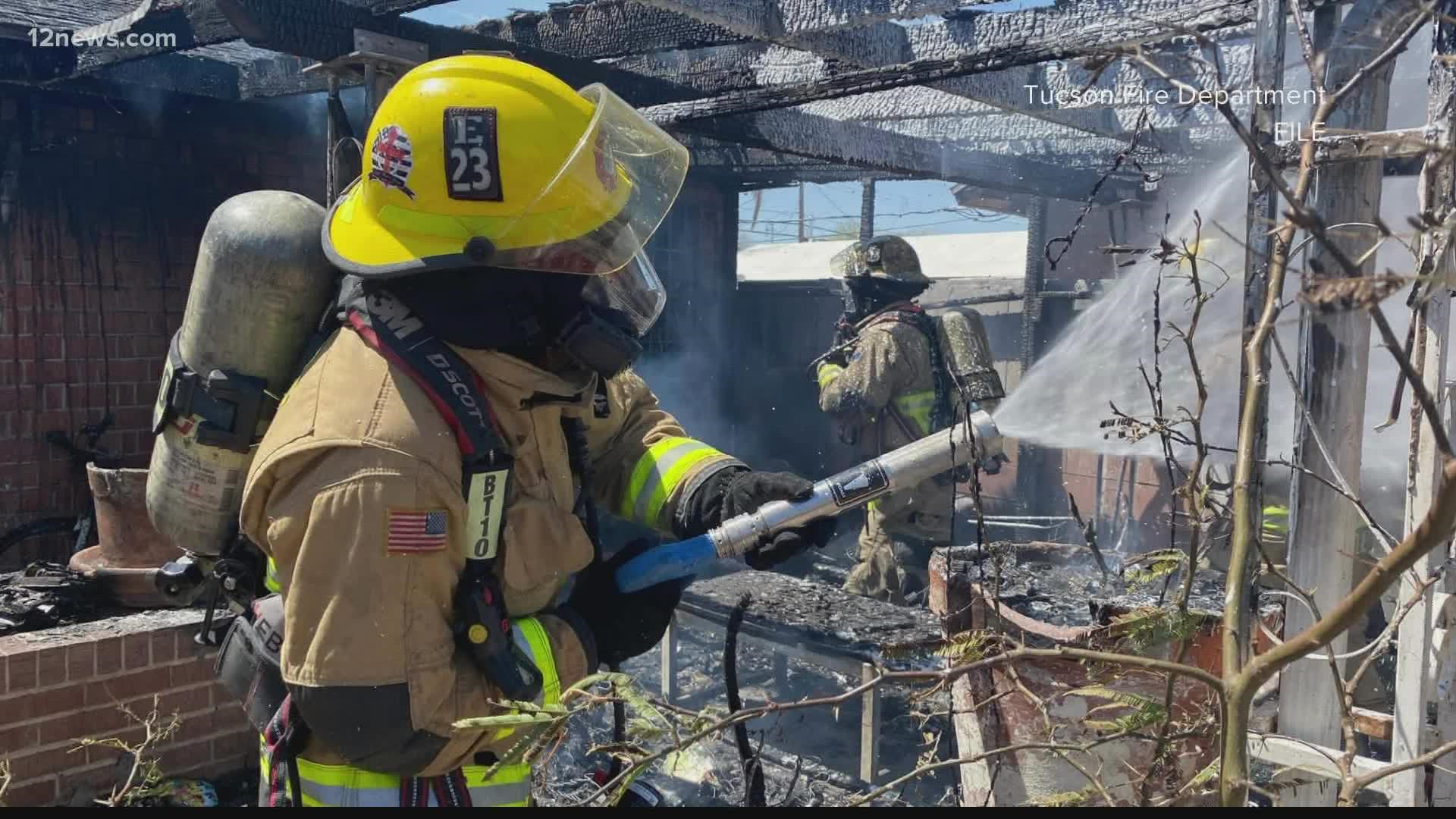ARIZONA, USA — Cancer is the leading cause of death among firefighters, according to the Centers for Disease Control and Prevention.
However, a team of Arizona researchers believes it might be because each fire they fight is changing how their genes work, making them more susceptible to cancer and other diseases.
Cancer ‘epidemic’ among firefighters
While in the community, firefighters fight fires every day, it’s alongside one another they’re fighting something much harder.
“Each fire station in the State of Arizona, someone knows someone who just got diagnosed with cancer,” Bryan Jeffries, President of the Professional Firefighters of Arizona said.
Jeffries was one of those diagnosed in 2019.
“Not long ago I was in chemotherapy, I was fighting for my life because I came down with the number one cancer firefighters get, which is seminoma,” Jeffries said.
Jeffries said it’s the synthetic materials that are catching fire, exposing them to toxic chemicals.
Noting, that while their gear protects them from the heat of the fires, it doesn’t protect them from the chemicals.
“Some of the cancers, they’re sort of the dirty dozen as we call them, that we tend to get as firefighters, are some of the worst cancers that you can get,” Jeffries said.
Changing how genes work
Dr. Jeff Burgess and his team at the University of Arizona Mel and Enid Zuckerman College of Public Health have been trying to understand how firefighters are at such a high risk for cancers and other diseases.
“They're putting their lives on the line for us every day in the work they do, so we really need to help them, provide them the information that they need so that they can protect themselves,” Burgess said.
Burgess and his team’s latest study, funded by FEMA, found that firefighters undergo genetic changes that turn genes on and off, like light switches.
That’s called DNA methylation, where genes change in their expression without changing their actual DNA sequence.
When certain genes are turned on or off it can make people more at risk for things like cancer, Burgess said.
The team worked with Tucson Fire Department and studied new recruits through their first few years of working, finding the more fires they went to or how long they spent fighting them added up.
“They show that the more exposure a firefighter has, the greater the change they'll see,” Burgess said.
The study found changes at 680 different places on the genome. The study found many of those genes were related to cancers and other diseases.
While it’s not clear if those specific changes will lead definitely to cancer, it’s a lead to understand exactly what does.
“If we know that changes are leading to an increased risk of cancer, then that gives us a target for future studies where we could try to prevent that change, or maybe reverse it,” Burgess said.
Intervention steps
With the study taking place at the very beginning of a new recruit’s career, Burgess said it highlights how quickly these changes happen, and how they can add up over years on the job.
“I think that that tells us that there are interventions we can do even early on in a firefighters career that might yield a benefit,” Burgess said.
Jeffries said while fire crews are continually working on decontamination of their gear and themselves, keeping gear exposed to the chemicals out of the cab and in a separate area of the firehouse, there’s still more that can be done with changing equipment and tactics.
“Our equipment allows us to go deep into fires, right into that toxic soup to really do everything we can to rescue people. But there are times we may have to look at those tactics and see how we can dampen down and get rid of those chemicals before we make entry,” Jeffries said. “And we’re having a very robust conversation about our tactics as we speak.”
The team at UArizona is already expanding the study, working with even more fire departments around the country to understand exactly what DNA methylation sites are affected in firefighters.
“If we can figure the ones that are perhaps more consistently changed, you know, among fire departments around the country, that could help us target in for the specific DNA methylation sites that we would like to do those intervention studies on to either prevent the change or perhaps or to reverse it in the future,” Burgess said.
But it’s the study just released, and others like it, that leave Jeffries hopes will help save his colleagues.
“I hope that in one generation we can eradicate this cancer problem amongst firefighters,” Jeffries said.
Arizona Wildfire Season

